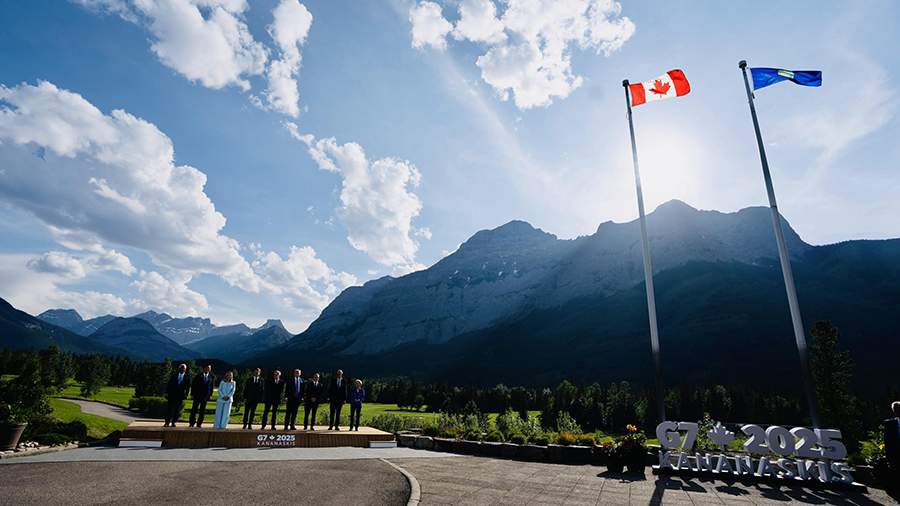The G7 is losing credibility after the disastrous summit in Canada. Analysis

The meeting of Western countries in the G7 format in Canada was tense due to the contradictions between them on key international issues, such as the conflicts in Ukraine and the Middle East. US President Donald Trump did not even wait for the end of the summit, at which there would be no final general communique. Why the participants cannot agree is in the analysis of Izvestia.
Contradictions at the meeting
• The G7 member States decided not to publish a single final document at the end of the next summit in Canada. The reason for this was disagreements between the United States and other participants on a number of key issues, including the Ukrainian conflict. Instead, several separate statements from the heads of state may be issued, which will cover various issues on the agenda, but will not represent a consolidated position of the G7.
• The rejection of the final communique is particularly satisfactory to the receiving party. In particular, the country's Prime Minister Mark Carney is interested in reducing diplomatic tensions in relations with the American leader Donald Trump, and also seeks to advance discussions on trade and economic cooperation and security issues. At the same time, last year's G7 communique included more than 30 pages of text and contained, among other things, a confirmation of support for Kiev and commitments to counter climate threats.
• The G7 meeting highlighted the contradictions in views on major international issues. For example, the Japanese government has previously strongly condemned the Israeli strike on Iran amid ongoing diplomatic attempts to resolve the situation with the Iranian nuclear program. However, there is no direct criticism of Israel's actions against Iran in the joint statement.
• At the same time, European countries insisted on the importance of direct negotiations, considering immediate de-escalation to be a step towards reducing regional tension. In turn, Trump noted that Washington's position goes beyond temporary measures and is aimed at long-term elimination of threats, including through military action.
Views on the Ukrainian conflict
• Contradictions of positions on Ukraine were also revealed at the meeting. Almost exactly one year ago, the G7 leaders gathered in Italy and signed a major agreement to provide Ukraine with loans worth $50 billion to support the war effort and the country's economy. Such coordination is now a thing of the distant past. There is little hope left among Ukraine's supporters for any united action to pressure Russia or support Kiev at the G7.
• Donald Trump's statement that excluding Russia from the G8 format was a big mistake also caused great resonance. He is convinced of the need for direct dialogue with major world powers, regardless of political differences. According to Trump, having Russia at the negotiating table would contribute to a more open discussion of key international crises, including security, energy, and strategic stability.
• The inconsistency of approaches is evident in discussions about the pace and forms of assistance to Ukraine, the use of Russian assets, as well as scenarios for resolving the conflict. This can lead to a slowdown in decision-making and a weakening of the united support front. Also, in the long term, the lack of full coordination may affect the effectiveness of Ukraine's reconstruction and the sustainability of the sanctions regime.
Prospects of the format
• Overall, the G7 summit in 2025 turned out to be less productive than expected. Despite common intentions to maintain global stability and strengthen cooperation, tensions over key issues such as the conflict in Ukraine, relations with Russia and Iran, as well as economic challenges have created the conditions for protracted debate. Differences in approaches to military assistance and diplomatic settlement formats prevented the development of agreed solutions capable of moving beyond declarative statements.
• The G7 format is gradually losing its relevance in the context of rapid changes in global politics. Thus, the group lacks key economic and political players such as Russia, China, India and a number of countries with rapidly growing economies that have a significant impact on global security. This limits the G7's ability to address complex international issues that require broad participation and consideration of the interests of diverse regions.
• In addition, global challenges, in particular, climate change, digital transformation, food security issues and pandemics, require coordination at a broader international level than the narrow format of the seven developed countries can offer. At the same time, for several years there have been disagreements within the G7 itself on key issues of foreign policy and economic strategies, which reduces the group's ability to develop a unified and consistent position that affects global processes.
• Other international formats and multilateral organizations, such as the G20, BRICS, and regional unions, are becoming increasingly important, offering more inclusive and adaptive platforms for dialogue and cooperation.
When writing the material, Izvestia interviewed:
- the American political scientist Rafael Ordukhanyan;
- Dmitry Drobnitsky, an American political scientist.
Переведено сервисом «Яндекс Переводчик»


